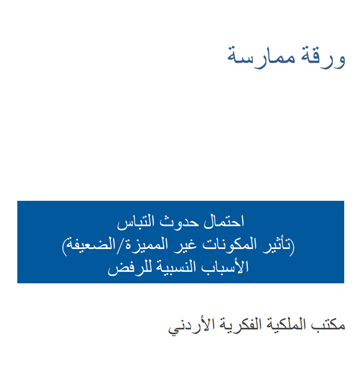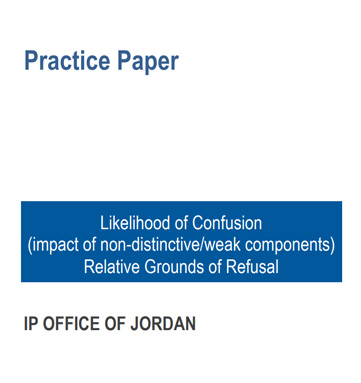Dr Blizkovsky, you have been a member of Brno City Council, a professor of economics, a Czech civil servant, and finally an EU civil servant. What do these experiences have in common?
I have spent nearly my entire career in public roles, including as a local politician.
I began my working life at an extraordinary moment in history. Central and eastern European countries – including the Czech Republic, at that time part of Czechoslovakia – were about to become free, democratic and independent nation states.
After a few years as an agricultural researcher and lecturer, I decided to enter public life and better serve the common good. I was elected municipal councillor in Brno, where I experienced first-hand what it means to be responsible for a community of 400 000 people. As the old saying goes, all politics is local. Working in the city council was a key experience for me, during which I learned the art and passion of compromise and collaboration.
In the mid-nineties I embarked on a career as a civil servant. I helped transform my country from a centrally planned economy and controlled society into what became an EU Member State, in the space of a few short years.
I was, and still am today, an ardent believer in the EU project. Combine this aspiration with my educational background in agriculture, and you can imagine that Czech accession to the EU interested me deeply. That is when I started working on the Common Agricultural Policy and other European regional matters.
So you arrived at the Council of the European Union, where you remained for about 15 years. What did you learn?
Once we Czechs finally joined the EU, I knew I wanted to continue what I had started, that is, help to build a peaceful, prosperous and united Europe for the future.
In a way, my job at the Council can be described easily: it was about ensuring that Member States adopted EU-wide laws. Of course, this can be very hard to do in practice.
Over time, I came to see myself as a combination of a diplomat, a mediator and a facilitator. Sometimes my team was ensuring that the rule-making process was respected. Other times, our role was to uphold compromise texts so that they would be adopted by the necessary majority. Very often, the decisions that we helped to adopt had a profound impact on European citizens.
As employees of the EU institutions, we should never forget how much the decision-makers that come to Brussels rely on our sound and impartial advice, and how far-reaching our work can be.
How do you see your role at the Committee of the Regions?
We all have one fundamental goal at the CoR. I would describe it as bringing the voice of regional and local politicians to Brussels and helping them to better serve and inform European citizens.
In our daily work as the CoR’s staff we ensure that the political assembly we are working for is well organised and able to amplify the political views of our members. Indeed, our Committee takes the local and regional perspective right into the heart of EU decision-making here in Brussels.
Through their opinions and their discussions with representatives of the European Commission, the European Parliament and the Council, our members contribute to shaping the Union’s decisions. At the same time they are informed about the most urgent policy issues currently at stake.
In my own role as secretary-general, I have some clear-cut priorities.
First, I want us to focus on sharpening our message and on increasing the political impact of our members’ work on the EU’s legislative process. Together, we need to use our expertise and all the tools and instruments our institution offers to do this. Each of us can increase the CoR’s impact in her or his field. Everybody is important and teamwork across the services is crucial!
Second, we need to step up our efforts to reach out to our partners in Brussels and most importantly to regional and local authorities all around Europe. We must invest time, resources and energy in spreading our message! This is not only crucial for people working in communication; it is a priority for all of us across the board.
Finally, I am committed to ensuring an efficient, transparent, modern and trustworthy public administration. The European Committee of the Regions has to be a place where people like to work and our staff should be proud of working at the Committee.
Why have you chosen the Committee of the Regions?
It was the idea of building the EU from the local level upwards that attracted me. If this sounds theoretical, I can assure you it is not. On the contrary, it is very practical.
Europe’s biggest success is that we have had no wars inside the EU since 1945. What we do instead is sit at the same table and look for shared solutions.
However, today this is no longer enough. Our citizens expect the EU to manage change in a way that maintains strong economic and social systems, and defends what some would call “the European way of life”.
This is only possible by continuing to look at the EU from both a national and a local perspective, through sustained dialogue between citizens, municipalities, regions and the EU level. Nobody is better placed for this than local and regional representatives. I myself was a young politician, having been elected as a councillor in Brno in my mid-twenties. I witnessed first-hand the changes in my country at that time.
As our president said in Bucharest last year, local and regional authorities are the future of Europe. They have the experience, motivation and knowledge to ensure that Europe confronts the challenges of this century – climate change, social and regional inequalities, gender imbalance and many others. They also have the trust of our citizens, because they are working every single day in their communities. The CoR has enormous potential to do good for our citizens, and for Europe. Let’s believe in this opportunity and make it real!
Where do you get your motivation?
More than a million politicians are elected at regional and local level in Europe – young, old, women, men, people with various political affiliations, inspiration and values. Ensuring that those local and regional politicians come together, decide on common political priorities and ensure their uptake is what drives me every day. I was a young elected politician during the Velvet Revolution – the CoR is my chance to work with the regional and local politicians of today.
Is supporting our members a difficult task?
Yes – very much so. It is lengthy, it is complex, it needs to be done in 24 languages. But as I said, balancing EU-wide interests with those of regions and local authorities is a priority for our continent. My dream is that, for local and regional politicians, joining the CoR becomes a badge of honour and a sign of ambition and commitment towards a better Europe.
Vaclav Havel, the first Czech President, a writer, politician and a great European, said: “Those that say that individuals are not capable of changing anything are only looking for excuses”. I hope you find this principle as inspiring as I do.
Thank you.



